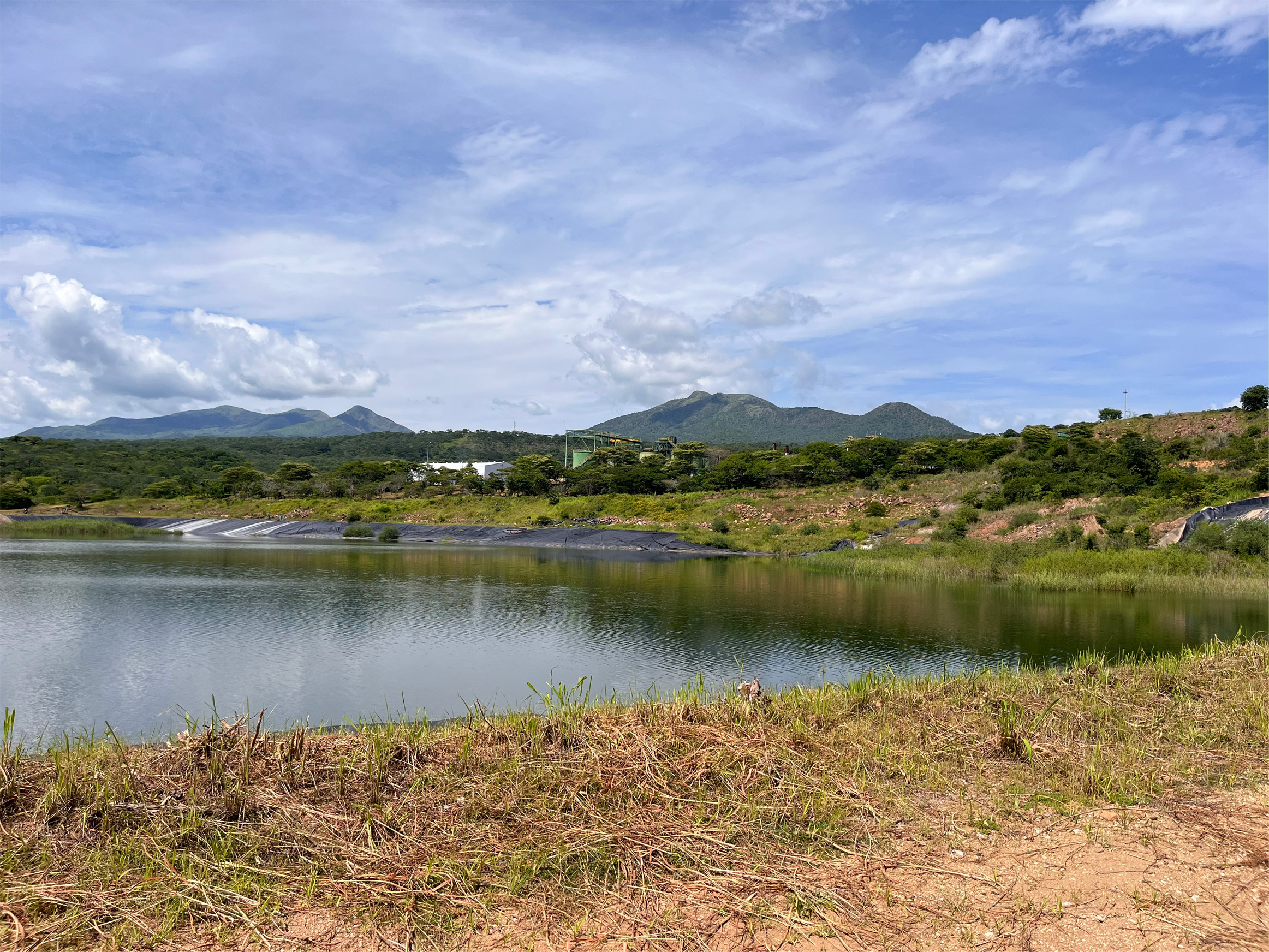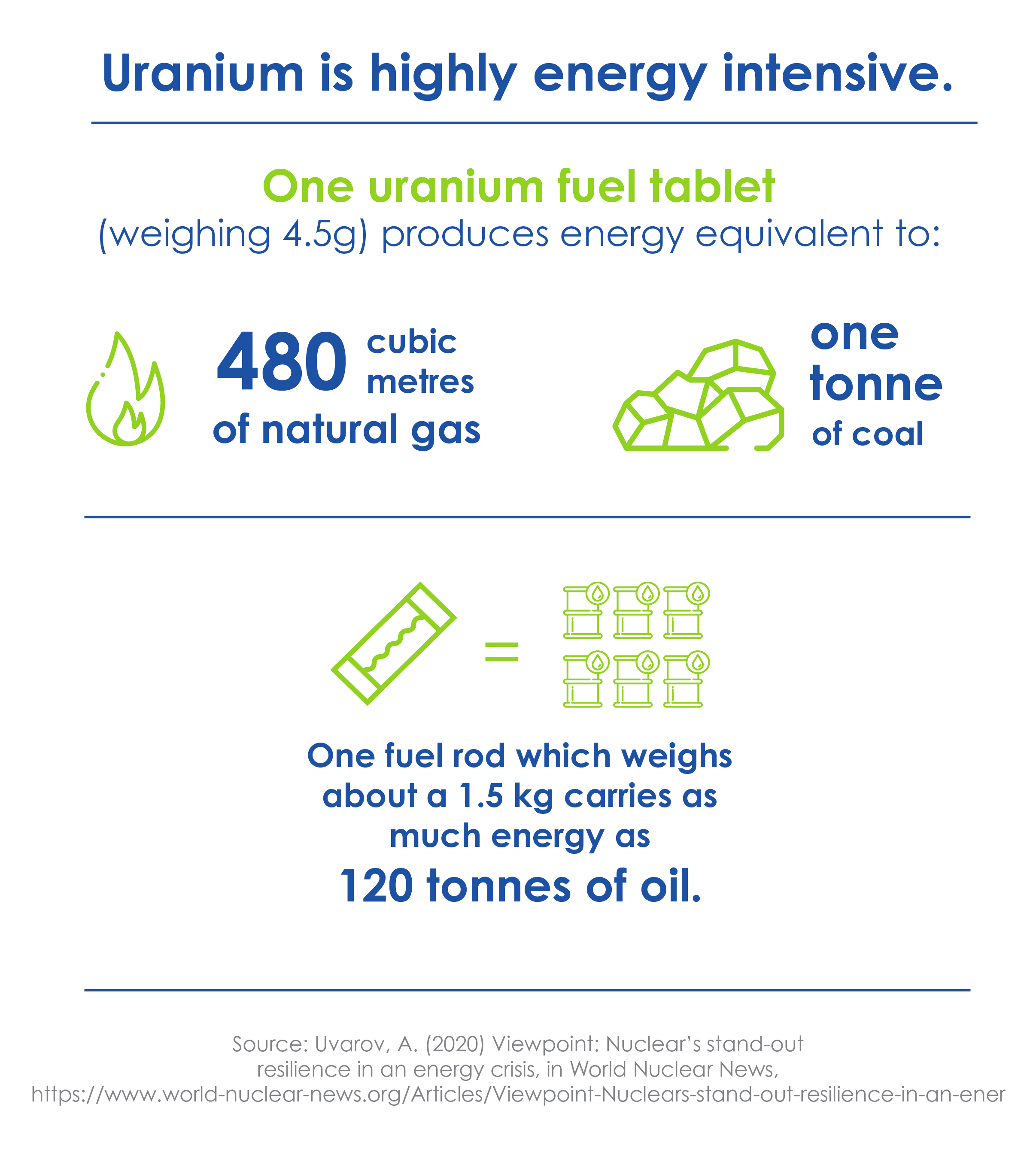
Uranium &
Decarbonisation
Uranium’s role in global decarbonisation
Climate change has emerged as one of the global community’s most critical issues. The Intergovernmental Panel on Climate Change’s (IPCC) Sixth Assessment Report (AR6) concluded human activities and an increase in greenhouse gas emissions have unequivocally caused global warming. Urgent action is needed to limit global warming to 1.5°C above pre-industrial levels. While there is a growing coalition of countries that are committing to net zero emissions by 2050, about half of emissions cuts must be in place by 2030 to keep warming below 1.5°C.
“The energy sector is the source of around three-quarters of carbon emissions today and is the key to avoiding the worst effects of climate change”. Clean-energy goals have been the focus of many global meetings, with policies like the Paris Agreement and the United Nations 24/7 Carbon-free Energy Compact aiming to accelerate the decarbonisation of the world’s energy system.
Nuclear energy is one of the largest and most reliable sources of low-carbon electricity available and has the potential to provide an essential foundation for transitioning to net zero.
Transitioning to net-zero carbon emissions is one of the greatest challenges our world will face. It calls for a complete transformation of how the world operates.
Nuclear-fuelled electricity generation an integral component of the green energy transition.
- Uranium is a common element and found all over the world (National Geographic)
- The nuclear power industry is highly regulated, helping to ensure safety and comfort (United Nations)
- It emits zero air pollutants (National Geographic)
- It’s safer for public health than fossil fuels (World Nuclear Association)
- The fuel-to-power output ratio is high, and is flexible having the potential to be coupled with renewables in hybrid energy systems (International Atomic Energy Agency)
- The nuclear power industry creates more jobs than the coal or natural gas industry (Nuclear Energy Institute)
Uranium
Uranium is the main fuel used by nuclear power plants. Uranium is a heavy metal which has been used as an abundant source of concentrated energy for over 60 years. Uranium is a common metal found in soils and rocks around the world and occurs in nature as two types of isotopes: uranium-235 and uranium-238. The isotope U-235 is important because in the right conditions it can readily be split, yielding large amounts of energy.
Fission is the process of splitting the uranium-235 atoms, and this process releases heat, radiation, and more neutrons, prompting further fission and creating a chain reaction. The heat (not the radiation), generated from this reaction is used to generate power, as it heats the steam that operates the turbines to generate electricity.
Uranium is a key energy contributor in the world’s transition towards a net zero future. A significant increase in uranium production is needed to support the transition to net zero by increasing feedstock for nuclear energy generation.


Nuclear energy is a safe, low carbon emissions power source and already provides around 26% of the world’s low-carbon power.
(World Nuclear Association)
Kayelekera Uranium Mine
Alongside national efforts, corporations are also playing a critical role in reaching the world’s net zero targets.
Lotus is committed to mining and processing uranium responsibly and has the potential to become a significant player in decarbonisation efforts by supplying uranium for nuclear energy generation.
Following the recommencement of mining, Lotus plans to produce 2.4-2.5 Mlb U3O8 per annum. Based on this production rate, Kayelekera can supply enough uranium to feed approximately five 1,400MW reactors per year. This equates to approximately 60 million MWh per year, enough to power 6 million homes.
This will be an important contribution to achieving the increasing global demand for low carbon energy and working towards achieving the Paris Agreement target.